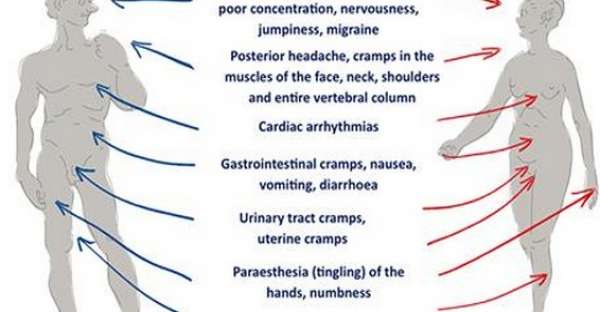Magnesium is a mineral which aids proper functioning of various organs in human body. Labeled as a multi-tasking mineral, magnesium is an essential but often overlooked nutrient. If one suffers from unknown fatigue or weakness, abnormal heart beat, muscles spasm or even eye twitches, low levels of magnesium could be the reason.
Magnesium deficiency cannot be determined by simple blood test since only 1 percent of magnesium in the body is in the blood. Thus, a sample of magnesium from a serum of magnesium blood test is not as useful.
Magnesium is likewise found in 325 enzyme reactions in the body- from energy production to cholesterol control. Furthermore, magnesium plays a vital role of the body’s detoxification processes making it necessary for helping to prevent damage the body from toxins, heavy metals and environmental chemicals.
According to the National Academy of Sciences, about 80 percent of American men and 70 percent of American women do not get the Recommended Daily Allowance (RDA) of magnesium from their diets and whatever supplements they are taking.
Dr. Dean has studied and written about magnesium for more than 15 years. “The Magnesium Miracle” the latest edition of her book released in 2014, presented 22 medical areas that magnesium deficiency causes, all have been scientifically investigated and proven, and each one can be treated with magnesium supplementation. This includes:
Anxiety and panic attacks, Hypoglycemia, Asthma, Insomnia, Blood clots, Kidney disease, Bowel diseases, Liver disease, Cystisis, Migraine, Depression, Musculoskeletal Condition (cramps, chronic back pain), Detoxification, Nerve problems, Diabetes, PMS, Infertility and preeclampsia, Fatigue, Osteoporosis, Heart Disease, Raynaud’s syndrome, Hypertension, and Tooth decay.
Magnesium is necessary for activating adenosine tri-phosphate ( ATP for creating energy in ones’ body), for proteins, carbohydrates and fats digestion, building blocks for RNA and DNA synthesis and acting as precursor for neurotransmitters like serotonin.
Magnesium deficiency may not be easily detected as it is also dubbed as invisible deficiency. But there are determiners such as headache, nausea, fatigue and weakness. If not treated in an early stage, a more serious symptom may occur including numbness and extreme muscle contractions, cramp seizures, personality changes and abnormal heart rhythms and coronary spasms.
